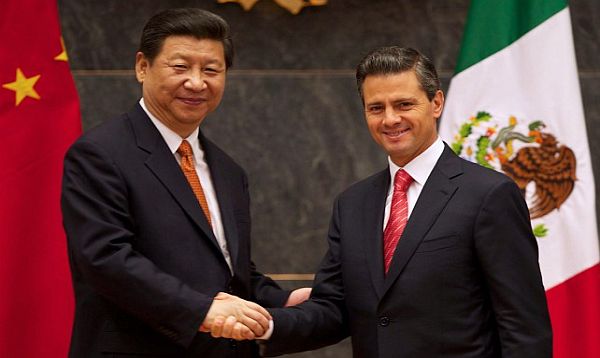China's economic turmoil may have spilled pain to other parts of the world, but Mexico's envoy to China is not too worried. Amid the buzz on China's global infrastructure push, Mexican ambassador Julian Ventura said his country was seeking to tap into the "One Belt, One Road" initiative.
A recent rebuff to Beijing's ambition to build a high-speed rail line in Mexico is said to have tainted China's confidence in Mexico. But in an interview with the South China Morning Post, Ambassador Ventura sought to brush off such concern and said investment between the two countries was steaming forward.
"The China Mexican trade and investment agenda goes beyond any particular sector or project," Ventura said in Hong Kong last week.
"It is strategic and a top priority for both China and Mexico... we have shown we are moving forward on the agenda."
In late 2014, Mexico abruptly cancelled the US$3.75 billion rail project shortly after awarding the bid to a consortium led by state-owned China Railway Construction Corporation. The project, intended to connect Mexico City and Queretaro to the north, was once touted as a jewel in China's crown of building high-speed train services around the world.
Ventura said trade and investment between the two countries continued to grow and he also played down risks of a slowing Chinese economy. "We are going to see China consolidating its position as Mexico's second largest trading partner, with over US$72 billion dollars of trade in 2014. The investment agenda continues to be dynamic," he said.
He also denied earlier media reports his government was seeking to make up for the rail incident by awarding bids to Chinese state-owned companies in the construction of a new US$11 billion airport in the country's capital.
"There is no quid pro quo on anything," Ventura said. The project would have "various blocks and stages" open for international bidding, he said.
"So we will see when the bidding processes take off, which companies join and participate, but those bidding processes have no subjective or preferential treatments. They are transparent."
The new airport is seen as Mexican President Enrique Peņa Nieto's flagship infrastructure project. Expected to open in 2020, the facility will replace the already congested Mexico City International Airport, the biggest in Latin America.
Original article


